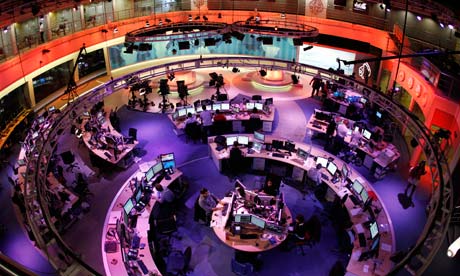(Updated below)
When Al Jazeera last December purchased Current TV in order to launch its own "Al Jazeera America" (AJAM) network, it seemed clear they had two general options for how the new network's brand could be built. AJAM could embrace the traditional attributes that has made Al Jazeera, at its best, an intrepid and fearless global news organization: willing to cover stories, air dissident views, and challenge power in ways that many other outlets, especially in the US, are afraid to do. Those excited by the entrance of a new Al Jazeera network into the US marketplace -- and I included myself in that group -- typically cited the urgent need for such an adversarial, bold and brave approach on the US airways from a large and well-funded TV news organization.
The alternative was that AJAM could try to replicate the inoffensive, neutered, voiceless, pro-US-government model favored by most US news organizations: as a way of appeasing negative perceptions associated with the Al Jazeera brand in the US. Those perceptions in some American precincts -- that the network is "anti-American," "anti-Israel" or even "pro-terrorist" -- stem from the network's coverage of US foreign policy (especially the War on Terror) that has been far more critical (in the best sense of the word) than most US news outlets were willing to be. For years, Bush officials fed this perception by accusing the network of being an anti-American source of terrorist propaganda. The US (accidentally, it claims) attacked al Jazeera bureaus on two occasions, killing its personnel. It even imprisoned an al Jazeera camerman, Sami al-Haj, for six years in Guantanamo without ever charging him with a crime.



